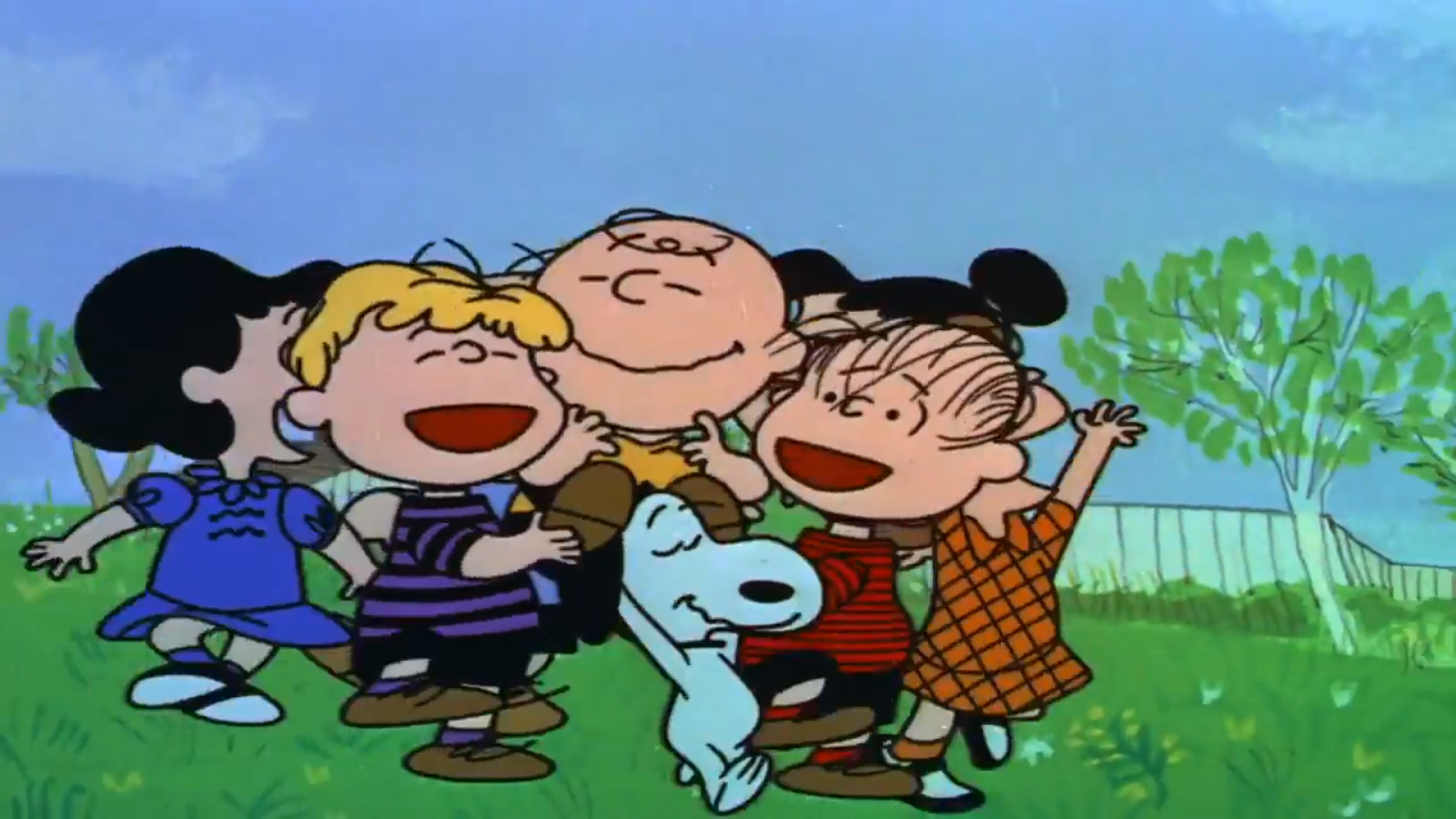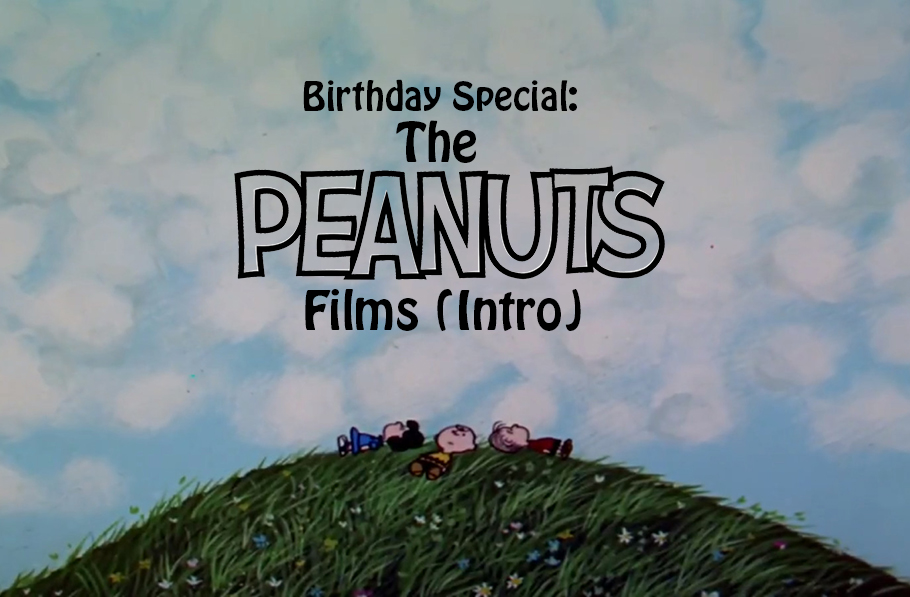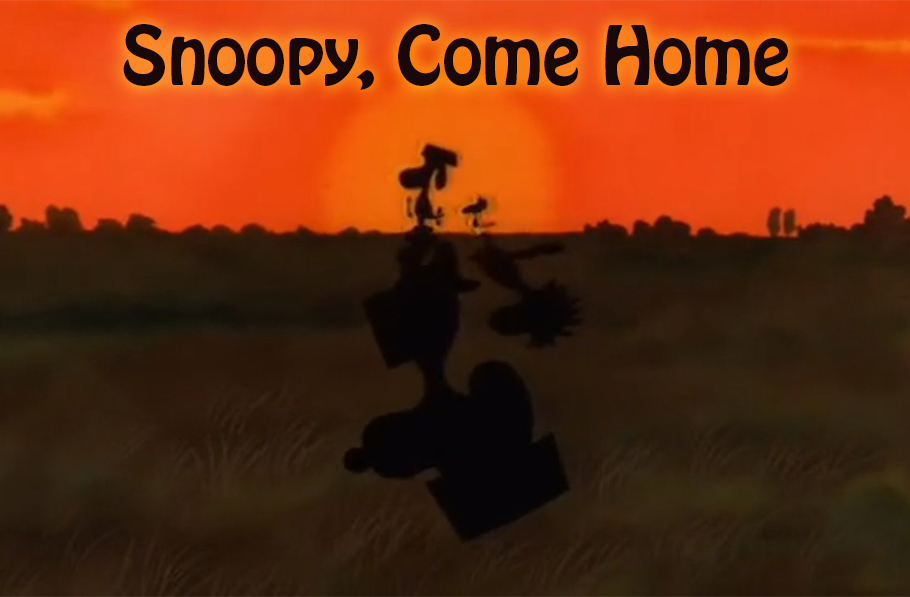A Boy Named Charlie Brown
Richard Petro / 06 October, 2018
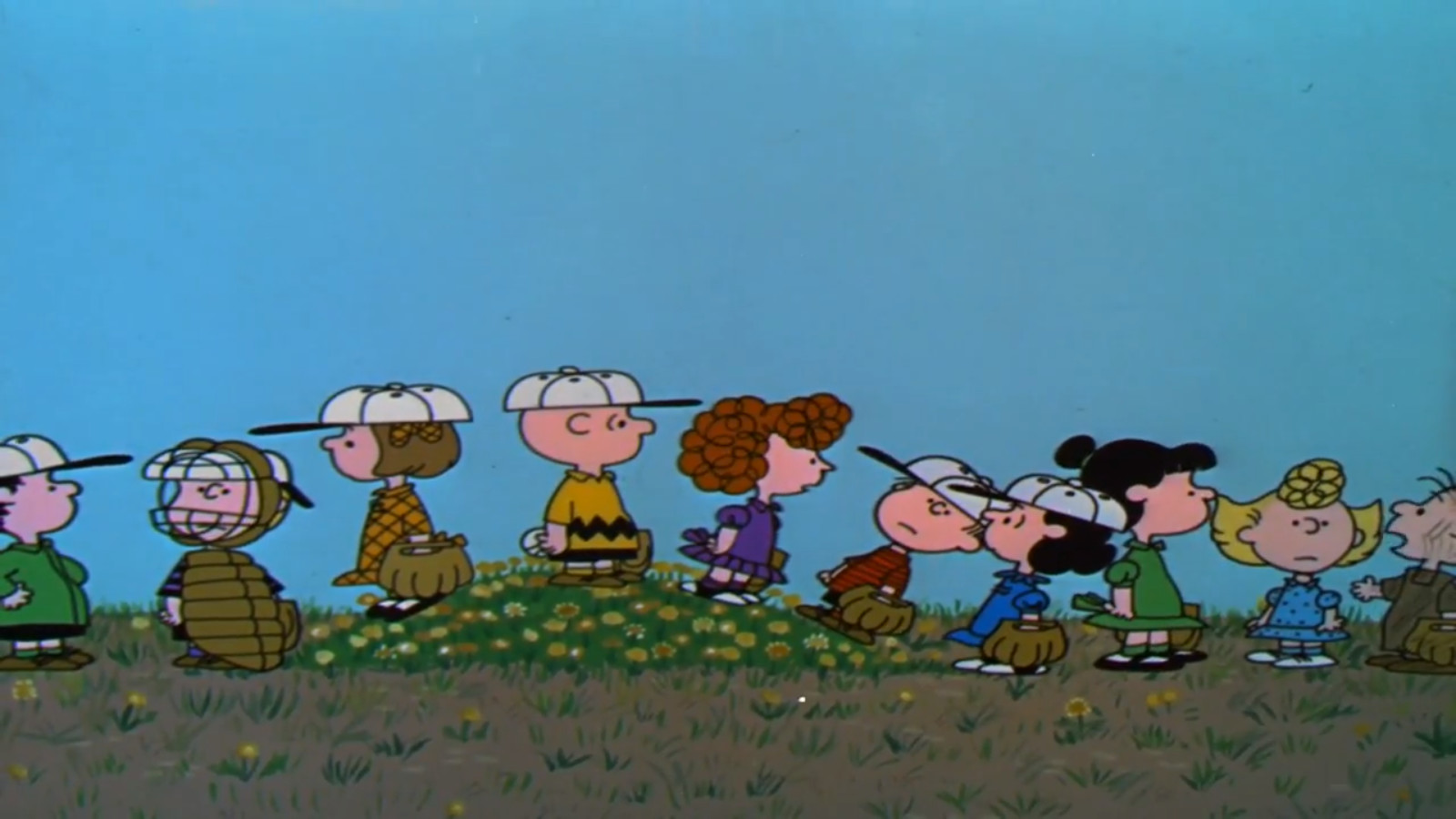
- Directed by: Bill Melendez
- Written by: Charles M. Shulz
- Release Date: December 4, 1969
- 85 Minutes
By the mid-1960s, Peanuts had essentially surpassed the description of being a sensation. With the popularity of the comics, which had by now evolved its characters to the point we still know and love today, A Charlie Brown Christmas was released in December of 1965 (the interesting production of which we will cover another day). The special was met with critical and commercial success, and it seemed to be only a matter of time before the prospect of a theatrical film was explored. Four years, one musical, and five specials later, A Boy Named Charlie Brown was released on December 4th, 1969.
The thought of a film based on Peanuts in general must have always seemed like it would be a difficult venture. The comic series, though having strips that would continue the previous ones story, was very much episodic in nature. The charm of it was the real-life elements the characters went through and how relatable their plight or frustrations were. Still, making a feature length piece on a medium essentially made out of small snippets of life could be difficult, especially in terms of needing a plot that ties everything together perfectly and keeps it going. It could be done, and it worked incredibly well in short, half hour specials, but it would have to be carefully worked on to be extended. With Schulz working on adapting his own work and Bill Melendez and Lee Mendelson coming along from the specials as director and producer, respectively, the decision was made to adapt a series of comics from a few years prior that involved Charlie Brown and a spelling bee, but extending it naturally and in a way that still worked in the overall theme of Peanuts.
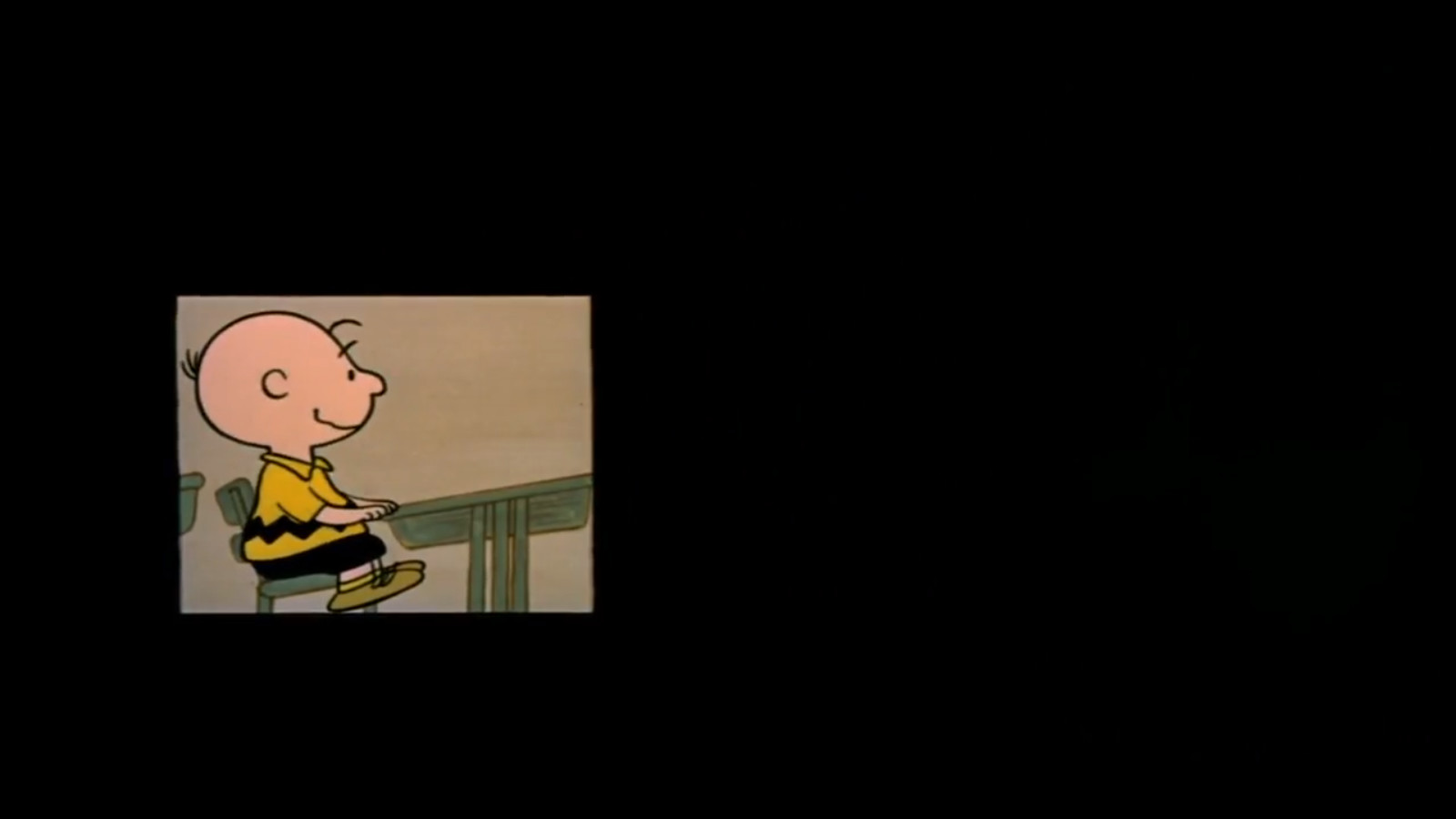 With all the complications that could come with making an 80 minute feature out of a comic strip, it’s almost a surprise that A Boy Named Charlie Brown is as good as it is. It would have been easier to make a film that was, well, good, but A Boy Named Charlie Brown holds up incredibly well even today, perfectly illustrating not just what made so many fall in love with the characters and comic strip, but why it resonated so much in the lessons it told and issues it tackled. While 15 years into its life might not seem it, in regards to Peanuts this film still came out relatively early in its life-cycle, and yet it still comes off as a wonderful love letter to it all.
With all the complications that could come with making an 80 minute feature out of a comic strip, it’s almost a surprise that A Boy Named Charlie Brown is as good as it is. It would have been easier to make a film that was, well, good, but A Boy Named Charlie Brown holds up incredibly well even today, perfectly illustrating not just what made so many fall in love with the characters and comic strip, but why it resonated so much in the lessons it told and issues it tackled. While 15 years into its life might not seem it, in regards to Peanuts this film still came out relatively early in its life-cycle, and yet it still comes off as a wonderful love letter to it all.
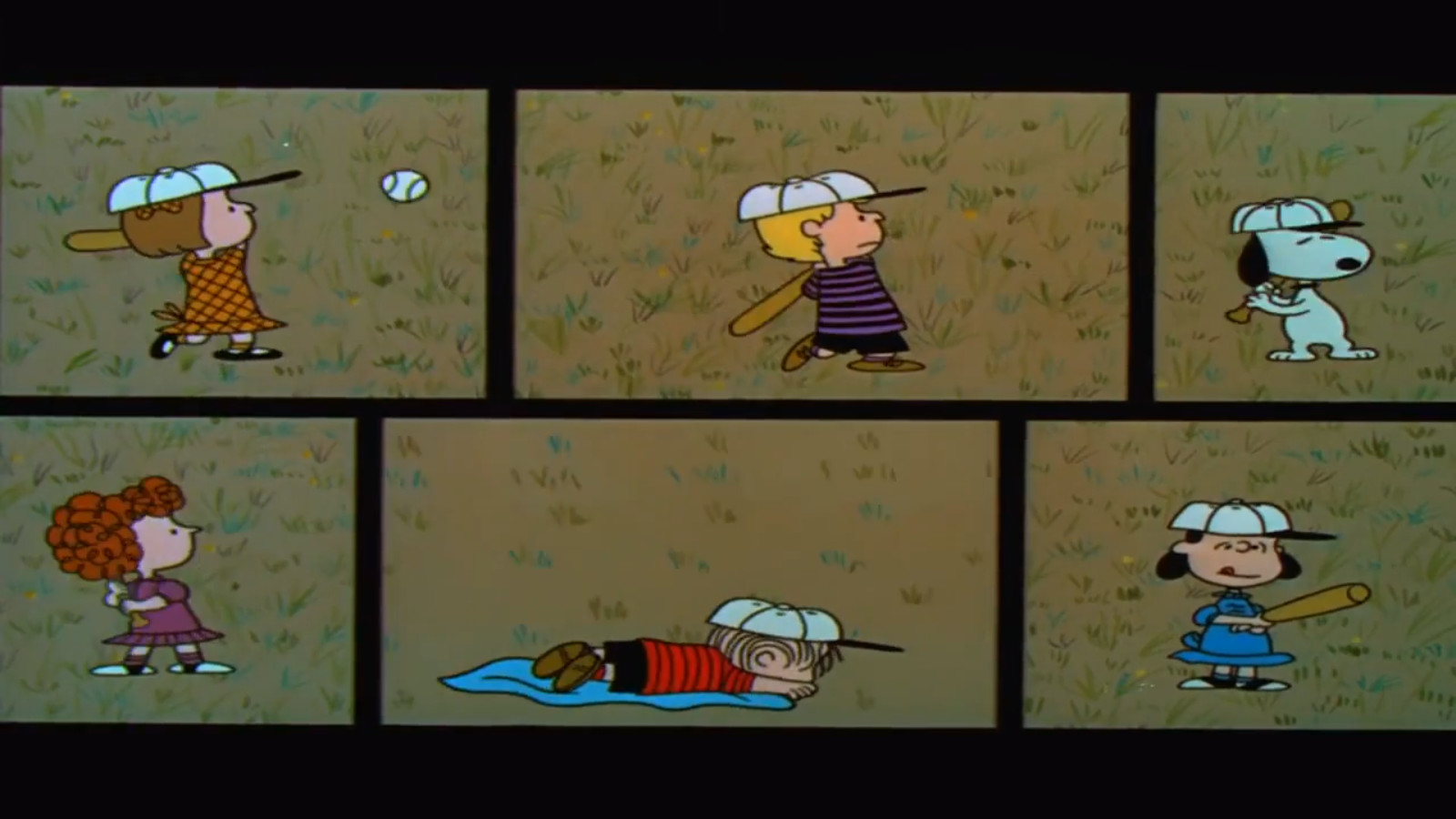 When their baseball team loses the season’s first Little League game, Charlie Brown wonders if he will ever be able to succeed and win at anything. Linus tries his best to keep his spirits up but life doesn’t seem to make it easy for Charlie Brown, especially when you have Lucy presenting your faults like a college professor giving a detailed lecture. Learning about a spelling bee, Charlie Brown sees this as his opportunity to prove himself, and does, feeling at the top of the world until he is told that winning the local school spelling bee enters him into the National Spelling Bee in New York. How will things turn out for our lovable ol’ blockhead?
When their baseball team loses the season’s first Little League game, Charlie Brown wonders if he will ever be able to succeed and win at anything. Linus tries his best to keep his spirits up but life doesn’t seem to make it easy for Charlie Brown, especially when you have Lucy presenting your faults like a college professor giving a detailed lecture. Learning about a spelling bee, Charlie Brown sees this as his opportunity to prove himself, and does, feeling at the top of the world until he is told that winning the local school spelling bee enters him into the National Spelling Bee in New York. How will things turn out for our lovable ol’ blockhead?
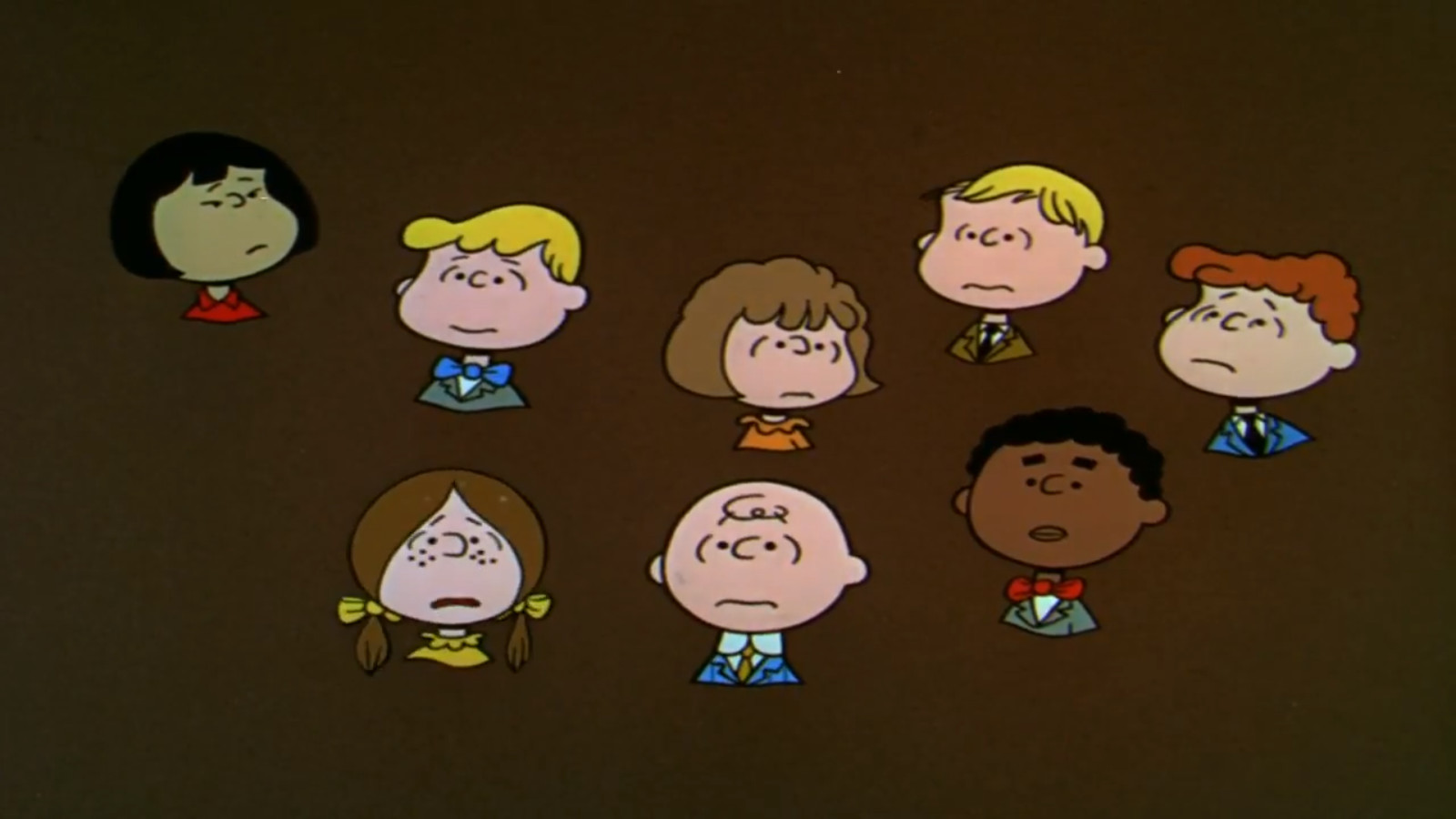 Starting off with a number of seemingly unrelated elements that feel more like classic Peanuts vignettes than something building to an actual plot, the pieces do a great job in setting the groundwork for the end goal that everything is moving towards. It makes perfect sense to focus the initial film on what Peanuts is, in many ways, about; a young boy who feels like he can’t catch a break trying hard at all costs, even when he knows it may not end up working out too well. The choice of a spelling bee is almost genius in how simple and obvious it is, especially when it is revealed to lead up to a national event that is televised. You’re with Charlie Brown the entire way, hoping that this is his day to show how much he can accomplish just because he set his mind to it.
The spelling bee itself is a tense affair; us wanting things to work out well but nerve-wracking because we know that things can just as easily end up awful. That’s what has always made Peanuts so endearing, the fact that it wasn’t scared to show that failure is a part of life and, more importantly, that it doesn’t really matter. Presented as a handful of floating heads as kids spell words and are systematically eliminated, while we cut back and forth between Charlie Brown, Linus and Snoopy in attendance and the kids watching at home, it is really effective in building a level of immersion you may not have fully expected going in. It’s almost akin to an edge-of-your-seat experience. Of course, things don’t turn out the best as Charlie Brown messes up right when it is down to himself and one other kid. While I have no qualms in saying he comes up short, since it leads to another discussion point, I won’t say how as it’s almost beautifully perfect and unfair in the way life can be; a moment where you are suckered into a level of confidence thinking something may be completely alright but messing up because of it.
Starting off with a number of seemingly unrelated elements that feel more like classic Peanuts vignettes than something building to an actual plot, the pieces do a great job in setting the groundwork for the end goal that everything is moving towards. It makes perfect sense to focus the initial film on what Peanuts is, in many ways, about; a young boy who feels like he can’t catch a break trying hard at all costs, even when he knows it may not end up working out too well. The choice of a spelling bee is almost genius in how simple and obvious it is, especially when it is revealed to lead up to a national event that is televised. You’re with Charlie Brown the entire way, hoping that this is his day to show how much he can accomplish just because he set his mind to it.
The spelling bee itself is a tense affair; us wanting things to work out well but nerve-wracking because we know that things can just as easily end up awful. That’s what has always made Peanuts so endearing, the fact that it wasn’t scared to show that failure is a part of life and, more importantly, that it doesn’t really matter. Presented as a handful of floating heads as kids spell words and are systematically eliminated, while we cut back and forth between Charlie Brown, Linus and Snoopy in attendance and the kids watching at home, it is really effective in building a level of immersion you may not have fully expected going in. It’s almost akin to an edge-of-your-seat experience. Of course, things don’t turn out the best as Charlie Brown messes up right when it is down to himself and one other kid. While I have no qualms in saying he comes up short, since it leads to another discussion point, I won’t say how as it’s almost beautifully perfect and unfair in the way life can be; a moment where you are suckered into a level of confidence thinking something may be completely alright but messing up because of it.
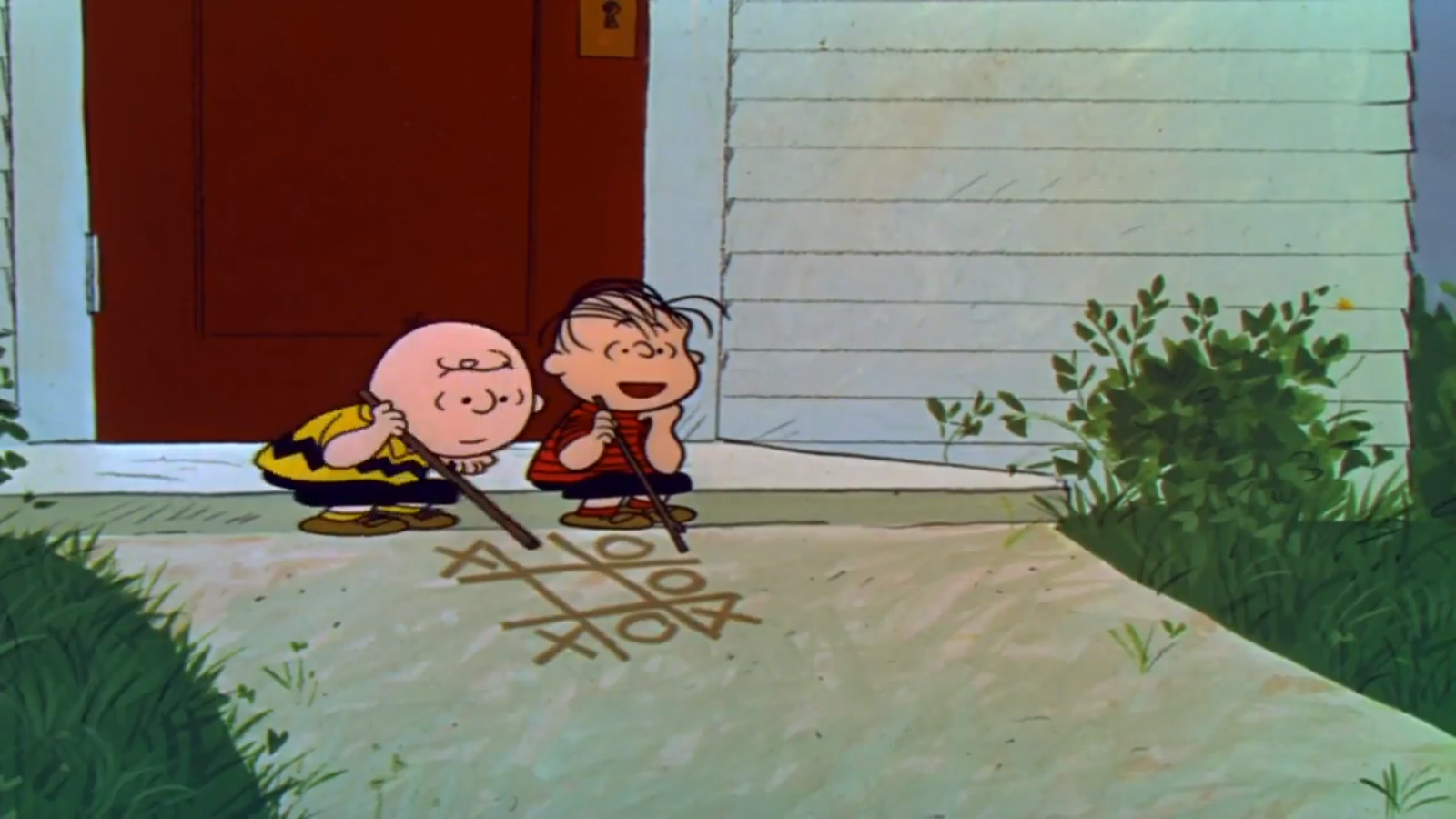 The failing of Charlie Brown on such a big stage is sad to see, but it leads to some great moments that Charles Schulz was always best at. Returning home, obviously dejected, Charlie Brown stays home from school because he doesn’t want to see anyone or face the world. A visit from Linus almost makes things worse, since they won the first game of the season without Charlie Brown there, but he, like always, he knows the perfect words to say:
Linus: "Well, I can understand how you feel. You worked hard, studying for the spelling bee, and I suppose you feel you let everyone down, and you made a fool of yourself and everything. But did you notice something, Charlie Brown?"
Charlie Brown: "What's that?"
Linus: "The world didn't come to an end."
The failing of Charlie Brown on such a big stage is sad to see, but it leads to some great moments that Charles Schulz was always best at. Returning home, obviously dejected, Charlie Brown stays home from school because he doesn’t want to see anyone or face the world. A visit from Linus almost makes things worse, since they won the first game of the season without Charlie Brown there, but he, like always, he knows the perfect words to say:
Linus: "Well, I can understand how you feel. You worked hard, studying for the spelling bee, and I suppose you feel you let everyone down, and you made a fool of yourself and everything. But did you notice something, Charlie Brown?"
Charlie Brown: "What's that?"
Linus: "The world didn't come to an end."
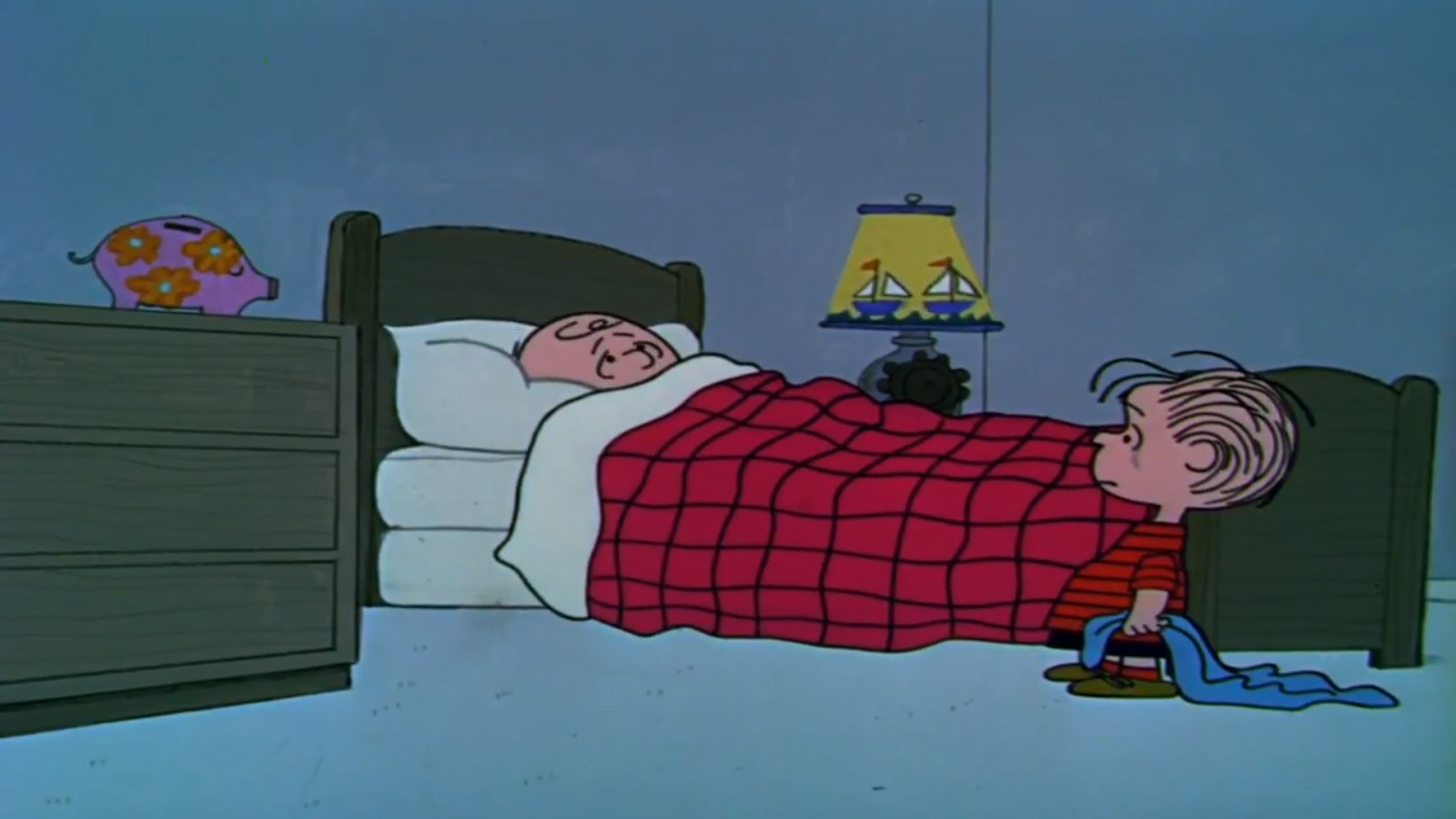 In the end, failures don’t matter. Linus mentions earlier in the film that failures cause a person to learn more, and his words near the end of the film are beautifully showcased even more once Charlie Brown decides to get dressed and go out and about town. All of the kids pay no attention to him. It isn’t because they are ignoring him, but because they are busy doing their own things, playing marbles or skipping rope. They watched the spelling bee the night before, but this is another day, to them it obviously matters less than Charlie Brown assumes.
Even more apt is what happens after. Continuing on his way, Charlie Brown spots Lucy in a field playing nonchalantly with her football. Sneaking up behind her, Charlie Brown takes a running start and moves to finally kick it out of her hands but Lucy, knowing he was there all along, yanks it out of the way. She approaches him and happily welcomes him home before we go to the end credits. Up until this point, Lucy was very, very verbally Charlie Brown’s biggest detractor (like usual), but here she says nothing of the prior nights failure. It seems to not matter to her, either. This could be because there are plenty of other opportunities to mock him or it would seem too easy, but the moment, with everything leading to it, comes off kind of sweet. It makes you think less that the kids mock Charlie Brown because, well, he’s Charlie Brown and he has a habit of messing up, but more-so that they are in some way rooting for him. They wanted him to succeed, hence the frustrated anger felt over the situation in how he lost the night before. There’s no mention at all of yesterday’s loss, even from the one girl who is the most blatantly mean-spirited in terms of Charlie Brown’s ‘Charlie Brown-ness”. He tried, he got far, and he’ll end up trying again. He always does.
It’s a very important lesson for kids to learn, that just because something goes wrong today doesn’t mean tomorrow and the next time don’t exist. You learn and keep moving on, and no matter how bad it seems, don’t let it get you down enough to not keep trying.
In the end, failures don’t matter. Linus mentions earlier in the film that failures cause a person to learn more, and his words near the end of the film are beautifully showcased even more once Charlie Brown decides to get dressed and go out and about town. All of the kids pay no attention to him. It isn’t because they are ignoring him, but because they are busy doing their own things, playing marbles or skipping rope. They watched the spelling bee the night before, but this is another day, to them it obviously matters less than Charlie Brown assumes.
Even more apt is what happens after. Continuing on his way, Charlie Brown spots Lucy in a field playing nonchalantly with her football. Sneaking up behind her, Charlie Brown takes a running start and moves to finally kick it out of her hands but Lucy, knowing he was there all along, yanks it out of the way. She approaches him and happily welcomes him home before we go to the end credits. Up until this point, Lucy was very, very verbally Charlie Brown’s biggest detractor (like usual), but here she says nothing of the prior nights failure. It seems to not matter to her, either. This could be because there are plenty of other opportunities to mock him or it would seem too easy, but the moment, with everything leading to it, comes off kind of sweet. It makes you think less that the kids mock Charlie Brown because, well, he’s Charlie Brown and he has a habit of messing up, but more-so that they are in some way rooting for him. They wanted him to succeed, hence the frustrated anger felt over the situation in how he lost the night before. There’s no mention at all of yesterday’s loss, even from the one girl who is the most blatantly mean-spirited in terms of Charlie Brown’s ‘Charlie Brown-ness”. He tried, he got far, and he’ll end up trying again. He always does.
It’s a very important lesson for kids to learn, that just because something goes wrong today doesn’t mean tomorrow and the next time don’t exist. You learn and keep moving on, and no matter how bad it seems, don’t let it get you down enough to not keep trying.
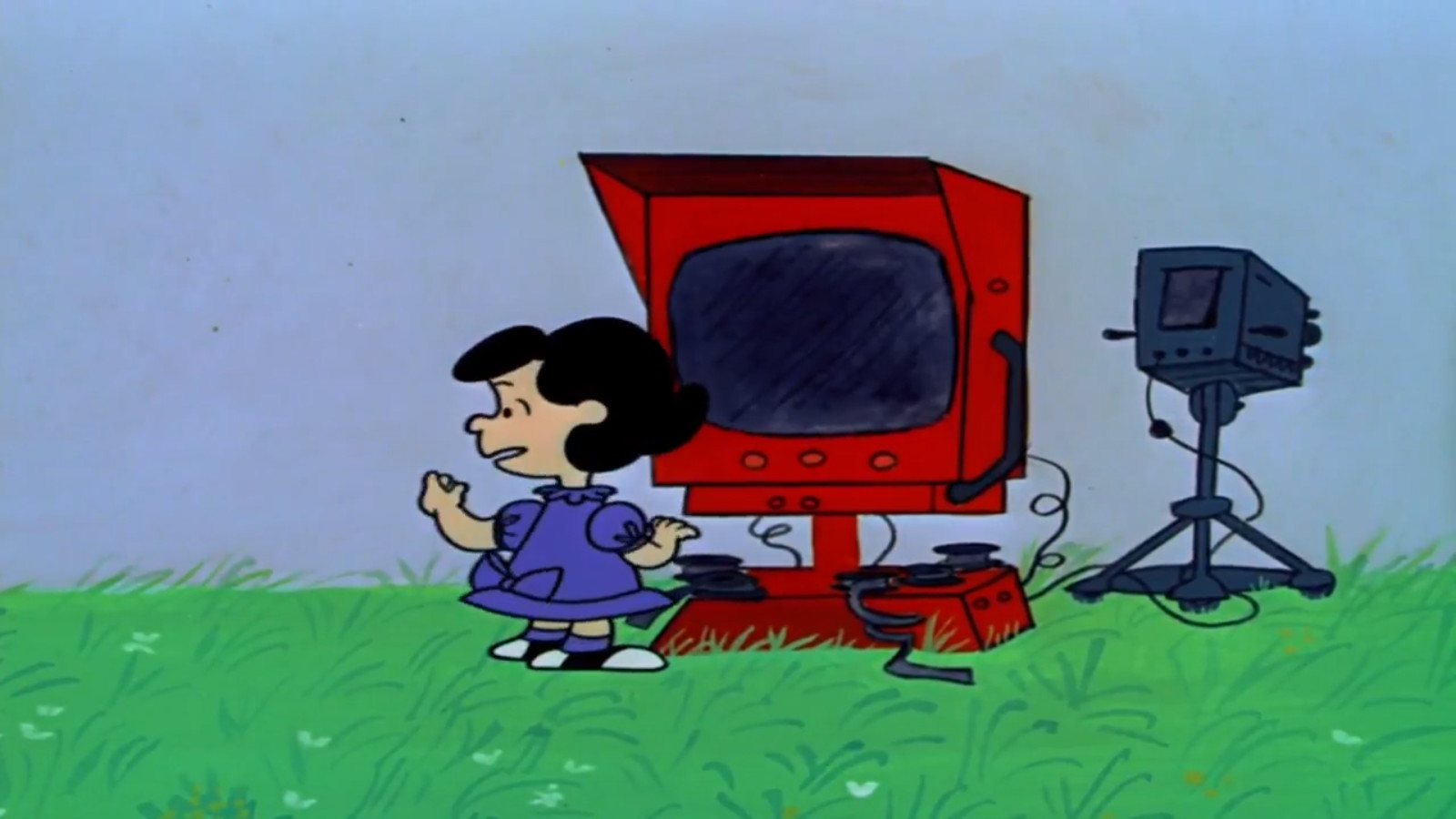 The other elements of the film are just as fantastic as its main story. Each of the kids known the most from this era get a chance to shine, with Lucy being absolutely amazing in the heights that she reaches here. Peanuts was always great in showcasing how great and smart and kind kids can be, but it never shied away from how mean-spirited and cruel they can be along with it. While we get her usual vocal negativity towards Charlie Brown, this film may hold the crème de le crème of Lucy moments. Visiting her for advice, Lucy drags Charlie Brown into her house for a presentation of all of his past failures. That she has. On a ready-to-go slideshow. This is then followed by Charlie Brown missing the usual football kick and Lucy goes to her already set up recording machine (!!) and does a slow-motion playback to painfully point out all the wrong from Charlie Brown here. It is a masterpiece of Lucy’s next level dedication to messing with this poor kid. It’s mean, but in a way you can’t take it too seriously, and because of this it also turns into one of the funniest prolonged moments in the film.
If you feel too angry towards Lucy being mean to Charlie Brown, don’t worry, there’s a hilarious moment where Shroeder is very obviously moments away from losing it on her.
The other elements of the film are just as fantastic as its main story. Each of the kids known the most from this era get a chance to shine, with Lucy being absolutely amazing in the heights that she reaches here. Peanuts was always great in showcasing how great and smart and kind kids can be, but it never shied away from how mean-spirited and cruel they can be along with it. While we get her usual vocal negativity towards Charlie Brown, this film may hold the crème de le crème of Lucy moments. Visiting her for advice, Lucy drags Charlie Brown into her house for a presentation of all of his past failures. That she has. On a ready-to-go slideshow. This is then followed by Charlie Brown missing the usual football kick and Lucy goes to her already set up recording machine (!!) and does a slow-motion playback to painfully point out all the wrong from Charlie Brown here. It is a masterpiece of Lucy’s next level dedication to messing with this poor kid. It’s mean, but in a way you can’t take it too seriously, and because of this it also turns into one of the funniest prolonged moments in the film.
If you feel too angry towards Lucy being mean to Charlie Brown, don’t worry, there’s a hilarious moment where Shroeder is very obviously moments away from losing it on her.
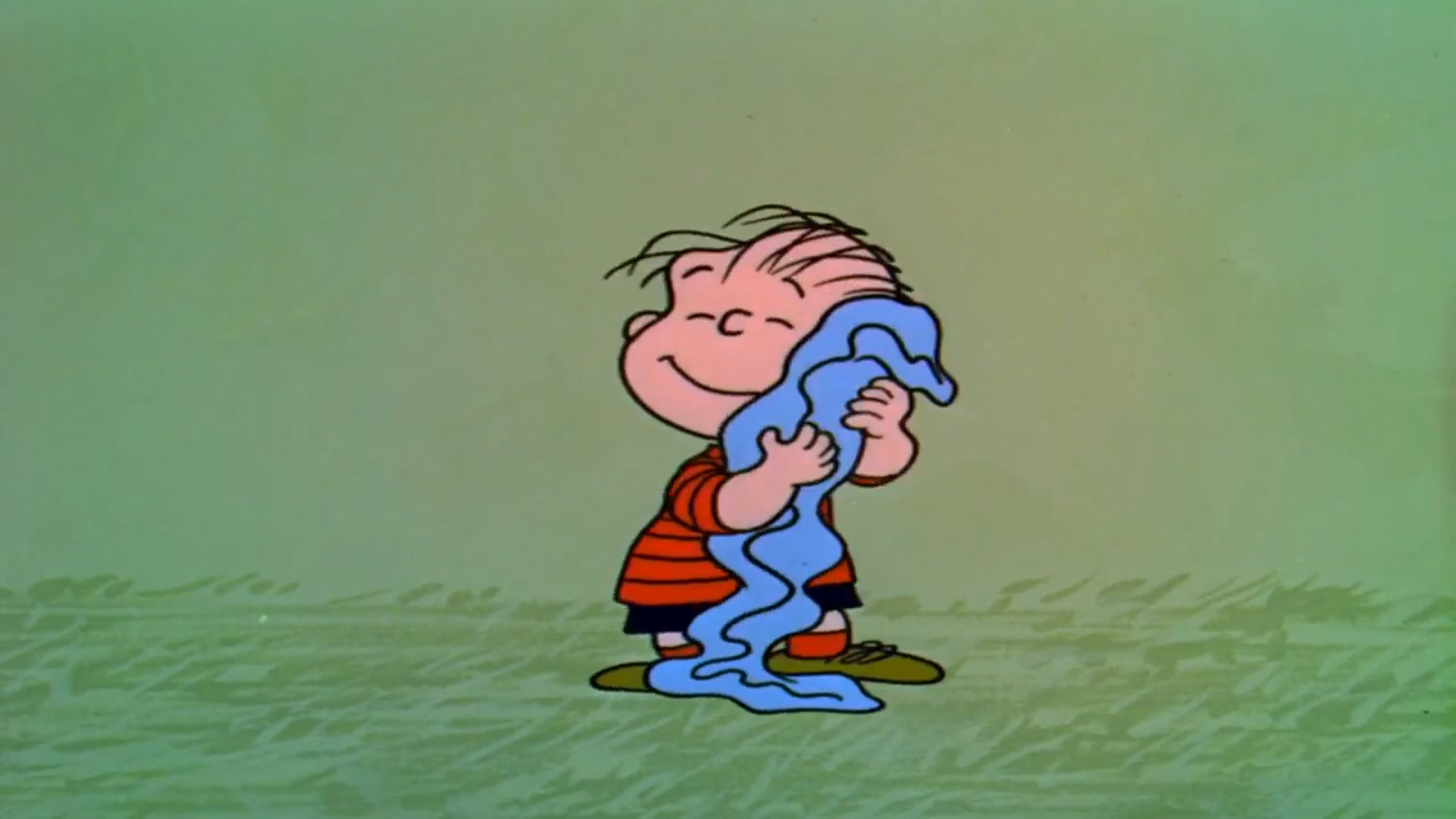 Linus keeps being his great, intelligent self, and it’s once again wonderfully balanced with him still acting like a child. To help Charlie Brown feel better about the New York trip, he lends his friend his lucky blanket, only to immediately suffer withdrawal symptoms that rival some of the most serious film drug addictions. Linus grabs Snoopy and the two travel to New York to find Charlie Brown, only to realize that he doesn’t quite know where it is because he’s been far too deep in studying his spelling.
Linus’s story in the second half could have very easily been one ongoing joke, with him repeatedly fainting because he’s so distraught (leading to one of the funniest late running gags, as whenever he does, Snoopy runs off to get Linus water only to drink it in front of him), but there ends up being a lot of serious emotion in the sequence. Going out to the library, Linus sits on the steps lamenting, crying and angry that he doesn’t know where it is and that he can’t believe Charlie Brown has lost it.
It’s honestly a very great piece of acting, and that’s one thing that I think the child cast of Peanuts are never given as much of a due as they deserve. The acting across the entire film is very good, and I only really considered it at this point. Linus is a hard character to balance, especially as a child. He’s an intellectual who still has to keep in touch with his child-ness. The scene of him breaking down, crying, is incredibly touching and sad, and seeing him angry is a very nice touch since we don’t see it all too often. The following dance once Linus and his blanket are reunited is very sweet because of it.
Linus keeps being his great, intelligent self, and it’s once again wonderfully balanced with him still acting like a child. To help Charlie Brown feel better about the New York trip, he lends his friend his lucky blanket, only to immediately suffer withdrawal symptoms that rival some of the most serious film drug addictions. Linus grabs Snoopy and the two travel to New York to find Charlie Brown, only to realize that he doesn’t quite know where it is because he’s been far too deep in studying his spelling.
Linus’s story in the second half could have very easily been one ongoing joke, with him repeatedly fainting because he’s so distraught (leading to one of the funniest late running gags, as whenever he does, Snoopy runs off to get Linus water only to drink it in front of him), but there ends up being a lot of serious emotion in the sequence. Going out to the library, Linus sits on the steps lamenting, crying and angry that he doesn’t know where it is and that he can’t believe Charlie Brown has lost it.
It’s honestly a very great piece of acting, and that’s one thing that I think the child cast of Peanuts are never given as much of a due as they deserve. The acting across the entire film is very good, and I only really considered it at this point. Linus is a hard character to balance, especially as a child. He’s an intellectual who still has to keep in touch with his child-ness. The scene of him breaking down, crying, is incredibly touching and sad, and seeing him angry is a very nice touch since we don’t see it all too often. The following dance once Linus and his blanket are reunited is very sweet because of it.
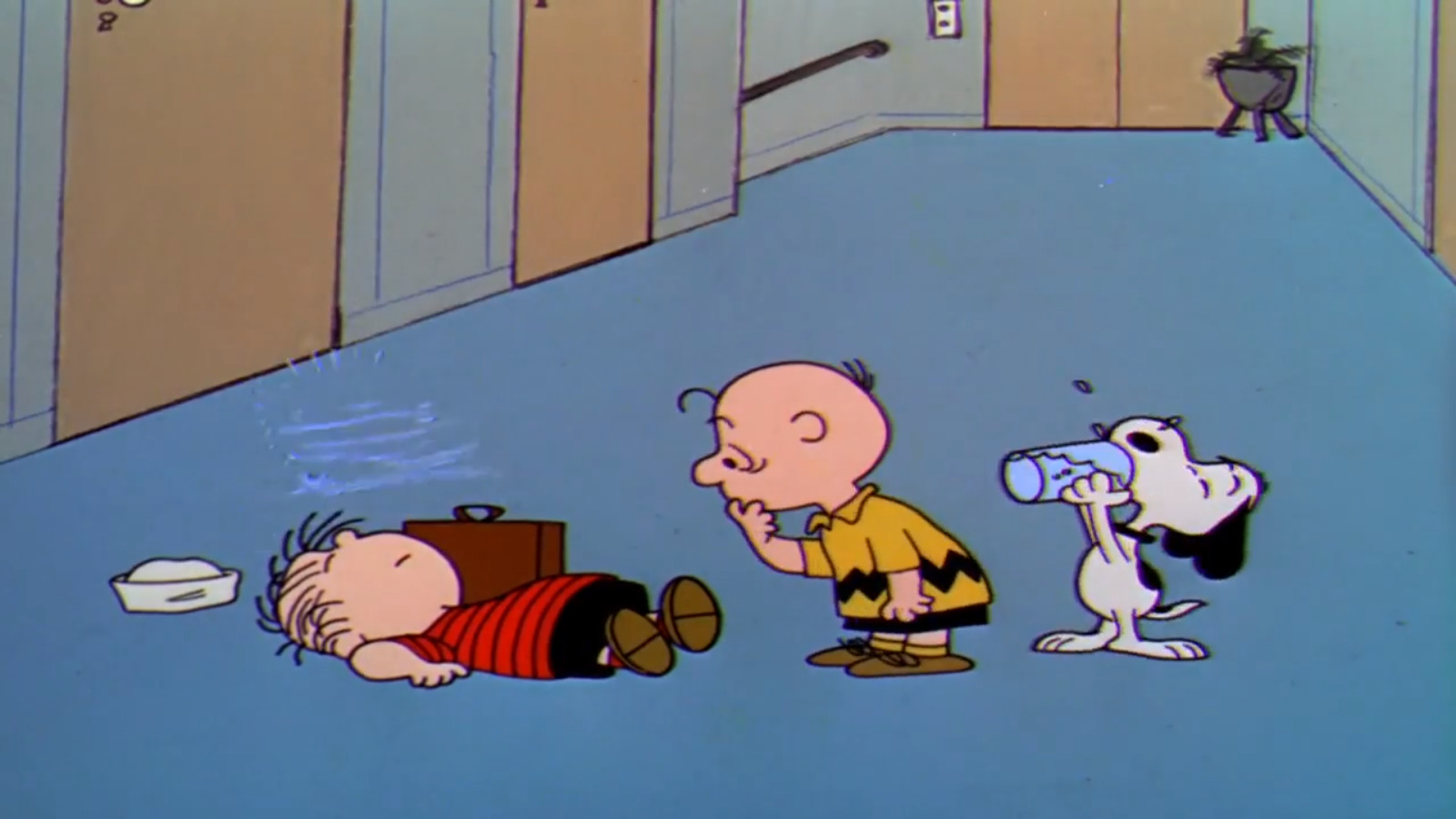 Of course, there’s still Snoopy. Snoopy is used perfectly in the feature; not too much but still a good presence that can be used for comedic elements. He’s a wonderfully realized, mostly silent character, and the timing exhibited in his actions are perfect. The aforementioned gag of Snoopy retrieving himself water whenever Linus faints never fails to make me laugh, as well as a great moment when they enter the building of the spelling bee where he salutes the doorman. Seeing him and Linus and out about together is also adorable, especially a moment where Snoopy plays along with Linus once he is reunited with his blanket.
Of course, there’s still Snoopy. Snoopy is used perfectly in the feature; not too much but still a good presence that can be used for comedic elements. He’s a wonderfully realized, mostly silent character, and the timing exhibited in his actions are perfect. The aforementioned gag of Snoopy retrieving himself water whenever Linus faints never fails to make me laugh, as well as a great moment when they enter the building of the spelling bee where he salutes the doorman. Seeing him and Linus and out about together is also adorable, especially a moment where Snoopy plays along with Linus once he is reunited with his blanket.
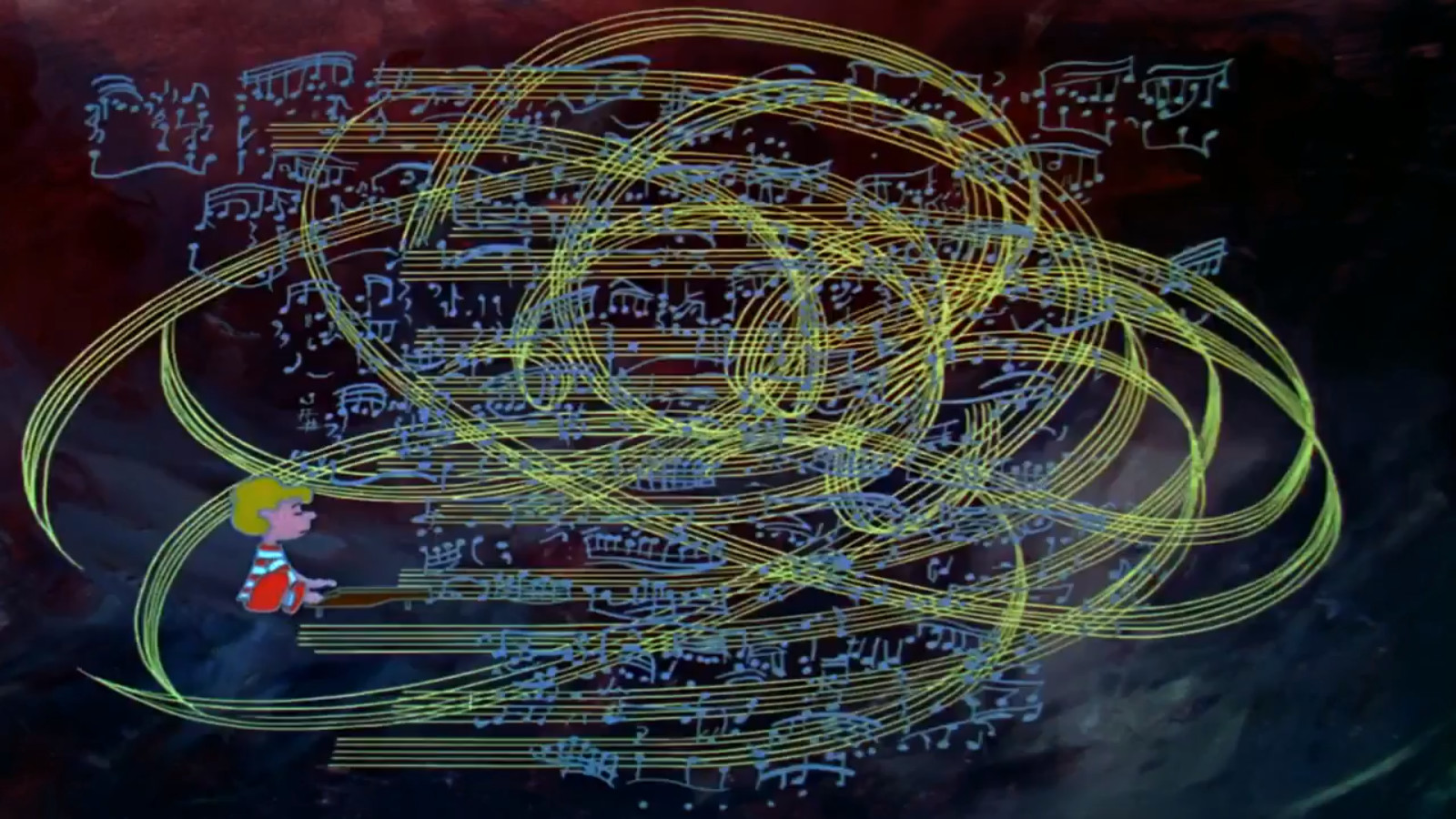 As much as Snoopy has a lot of great small moments that are worth experiencing simply through viewing the film, he has three moments that segue nicely into another point I enjoyed about the film. There are a few moments that seem very disconnected from everything else because, well, they are. I’ve seen people react differently to some specific ‘padding’ moments, but I loved them all.
We get nice interludes to Snoopy’s insane celebration on a boombox prior to the beginning of the ball game (along with the kids hilariously just watching him set-up), a wonderfully executed Red Baron nightmare, and a scene where he figure skates and then plays some hockey (along with a penalty box argument). There’s also a piece involving Shroeder playing Beethoven that is almost Fantasia-esque. All moments are beautifully realized and coloured, with different styles used to make them stand on their own.
As much as Snoopy has a lot of great small moments that are worth experiencing simply through viewing the film, he has three moments that segue nicely into another point I enjoyed about the film. There are a few moments that seem very disconnected from everything else because, well, they are. I’ve seen people react differently to some specific ‘padding’ moments, but I loved them all.
We get nice interludes to Snoopy’s insane celebration on a boombox prior to the beginning of the ball game (along with the kids hilariously just watching him set-up), a wonderfully executed Red Baron nightmare, and a scene where he figure skates and then plays some hockey (along with a penalty box argument). There’s also a piece involving Shroeder playing Beethoven that is almost Fantasia-esque. All moments are beautifully realized and coloured, with different styles used to make them stand on their own.
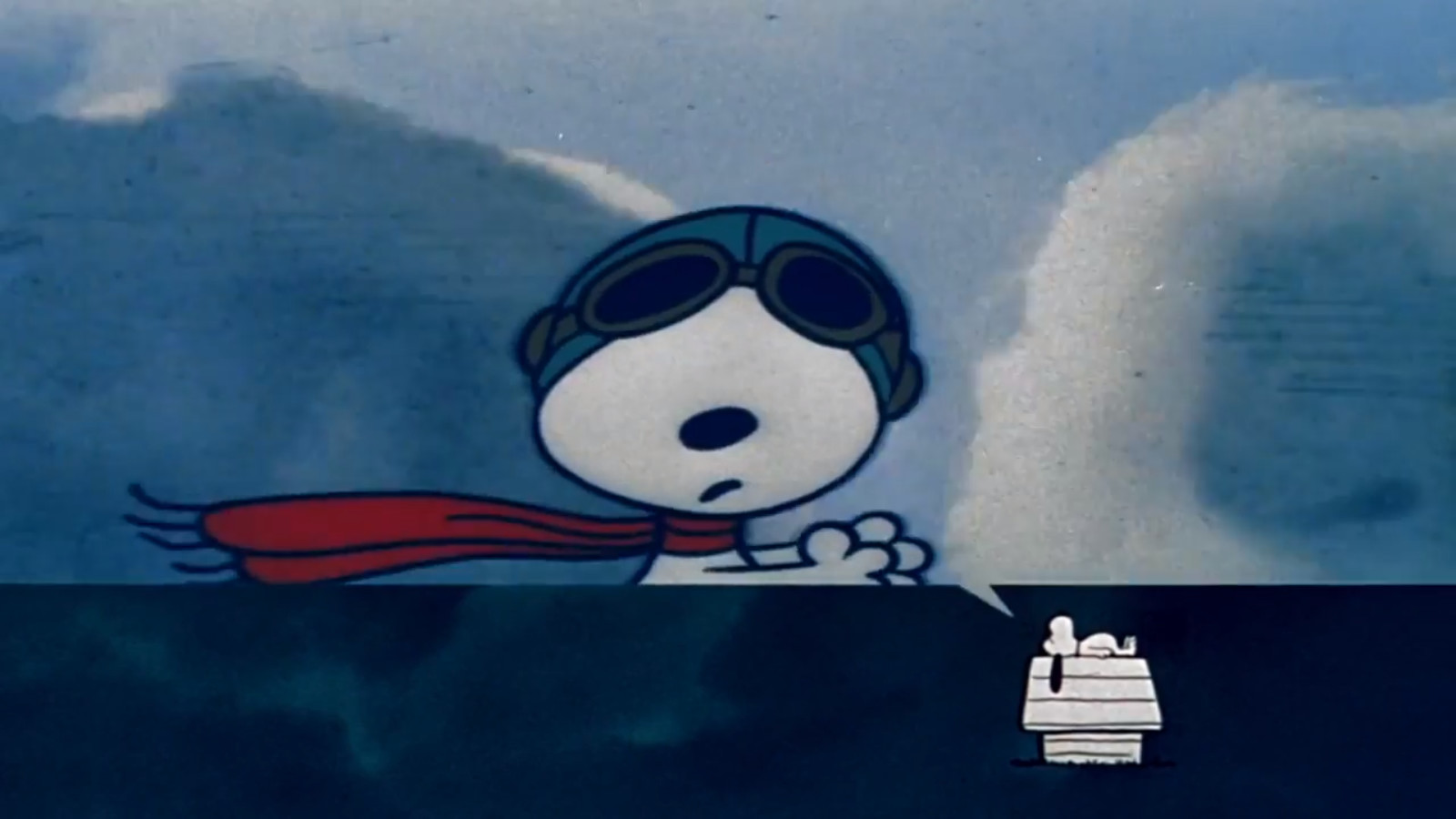 The Red Baron dream in particular showcases something else that the film does well; it’s use of frame and shots. Throughout the runtime we are treated to split-screens, different perspectives, the screen getting spliced into thirds to showcases strike-outs during baseball, and other techniques. The various art styles and colours, like watercolours and a very 60’s pop-art feel to other segments makes for a very visually interesting watch, and it worked for me, even in the sequences people considered to be nothing more than padding. A lot of it comes from the fact that it comes off just as charming as the surrounding characters, and it never feels very out of place in the imaginative world of children.
The Red Baron dream in particular showcases something else that the film does well; it’s use of frame and shots. Throughout the runtime we are treated to split-screens, different perspectives, the screen getting spliced into thirds to showcases strike-outs during baseball, and other techniques. The various art styles and colours, like watercolours and a very 60’s pop-art feel to other segments makes for a very visually interesting watch, and it worked for me, even in the sequences people considered to be nothing more than padding. A lot of it comes from the fact that it comes off just as charming as the surrounding characters, and it never feels very out of place in the imaginative world of children.
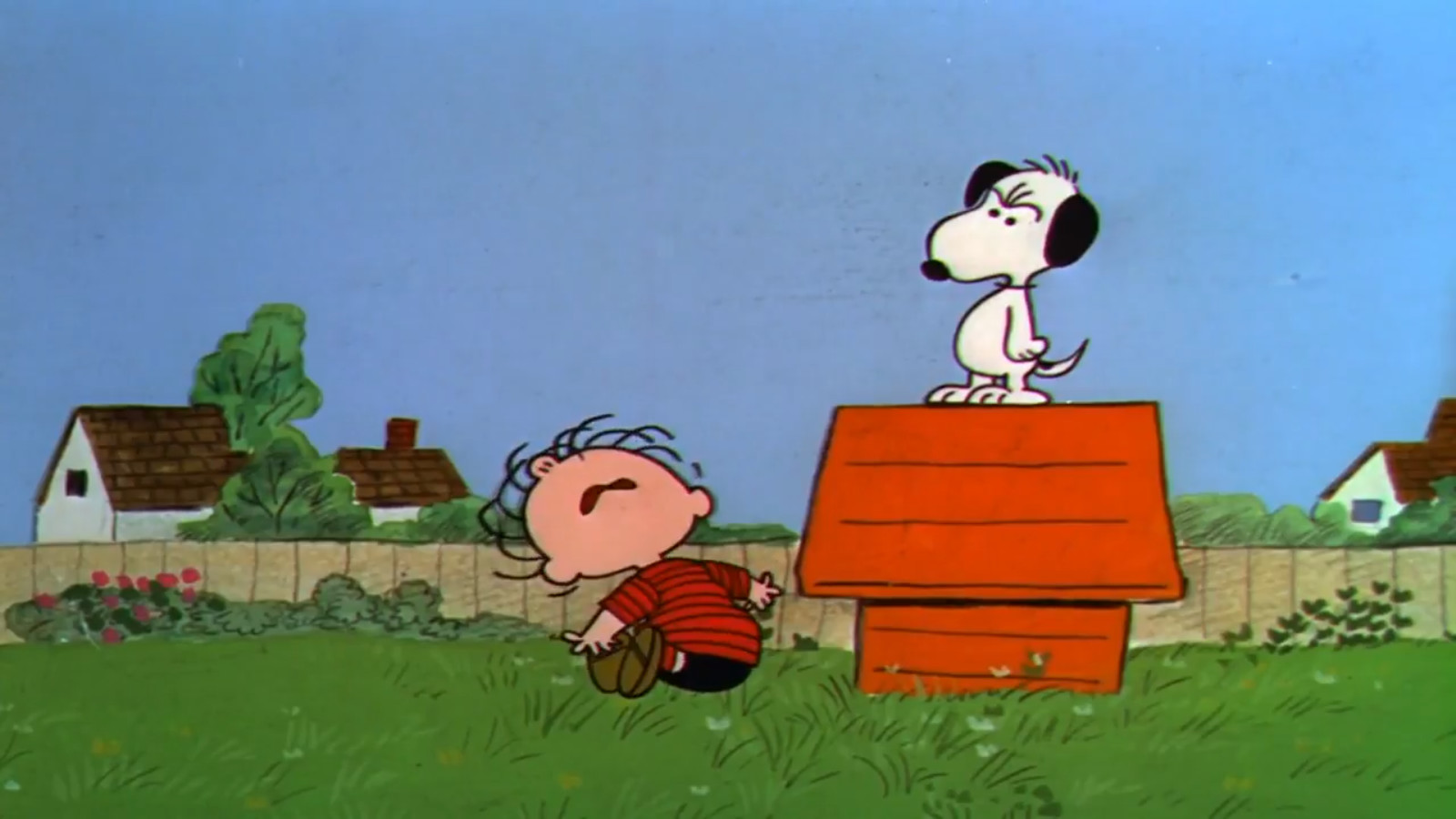 There’s a lot (and more, trust me, I can be here all day…) to say about A Boy Named Charlie Brown. It has held up absolutely beautifully, especially in the same way that the comic strip has; it’s a charmingly sweet and lovable story with great characters that teaches important lessons to children. Very few pieces of children’s entertainment tend to properly deal with the fact that loss and failure is okay, especially to this extent, and it’s always nice that we have a long-running property that constantly dealt with it wonderfully. As the wonderful title track (of a great all-around score) says; “He's just the kid next door/Perhaps a little more/ He's every kid in every town” and “But people after all/ Start out as being small/ We're all A Boy Named Charlie Brown.”
There’s a lot (and more, trust me, I can be here all day…) to say about A Boy Named Charlie Brown. It has held up absolutely beautifully, especially in the same way that the comic strip has; it’s a charmingly sweet and lovable story with great characters that teaches important lessons to children. Very few pieces of children’s entertainment tend to properly deal with the fact that loss and failure is okay, especially to this extent, and it’s always nice that we have a long-running property that constantly dealt with it wonderfully. As the wonderful title track (of a great all-around score) says; “He's just the kid next door/Perhaps a little more/ He's every kid in every town” and “But people after all/ Start out as being small/ We're all A Boy Named Charlie Brown.”
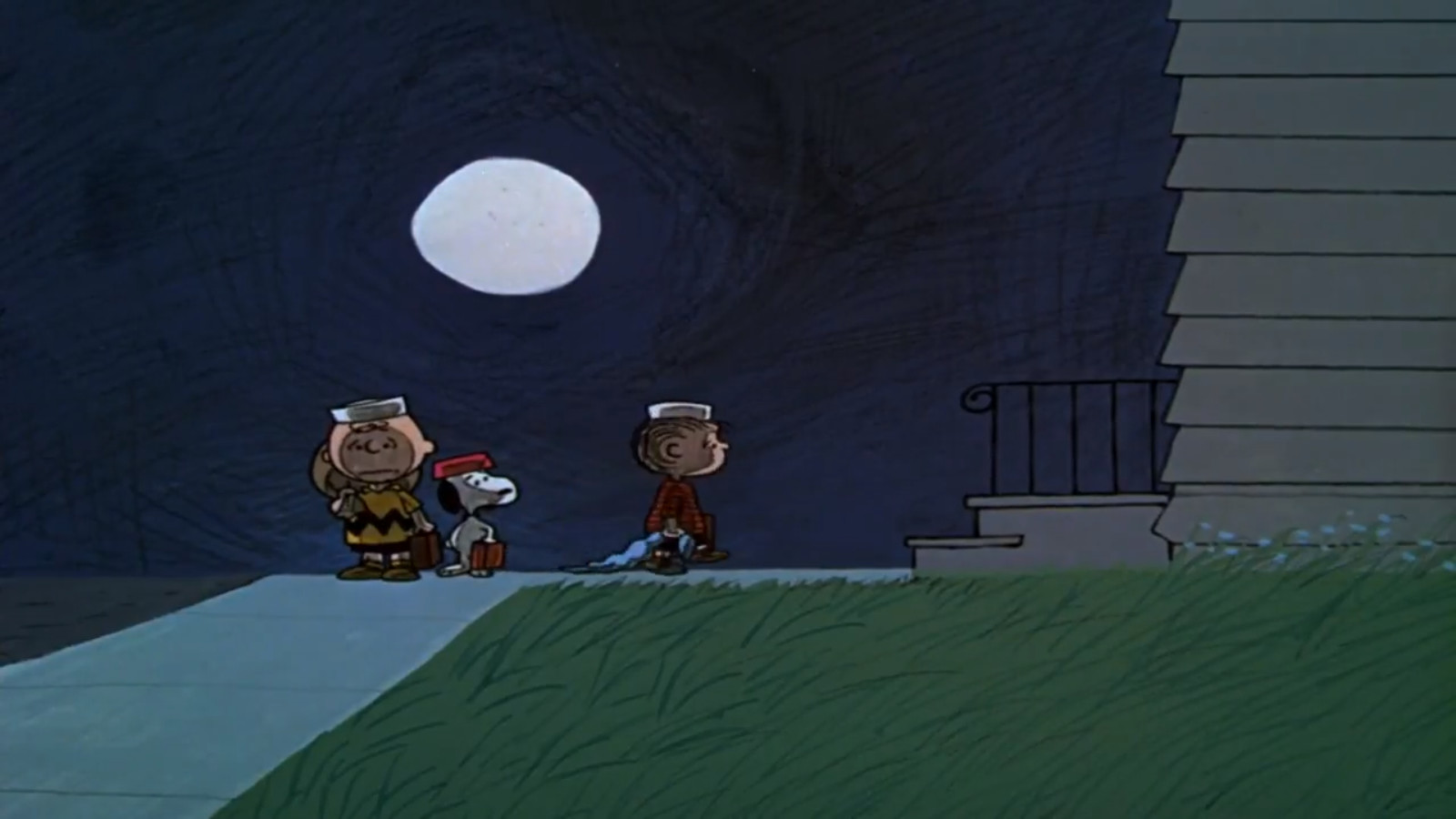 A Boy Named Charlie Brown is definitely worth watching or re-watching. What makes it still stand these days is that it always focused on something worldly and relatable, and it did it perfectly. It’s a beautiful love letter to everything that made Charles Schulz’s work stand beloved over the decades, and it’s a testament to his work that it’ll still hold up years and years from now.
A Boy Named Charlie Brown is definitely worth watching or re-watching. What makes it still stand these days is that it always focused on something worldly and relatable, and it did it perfectly. It’s a beautiful love letter to everything that made Charles Schulz’s work stand beloved over the decades, and it’s a testament to his work that it’ll still hold up years and years from now.
